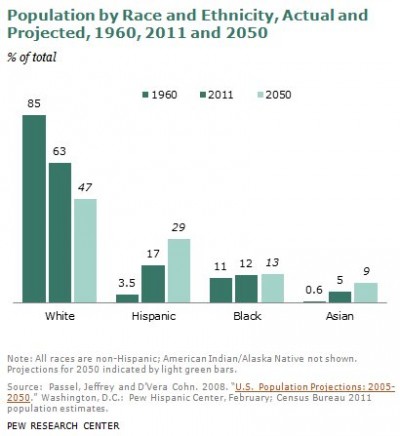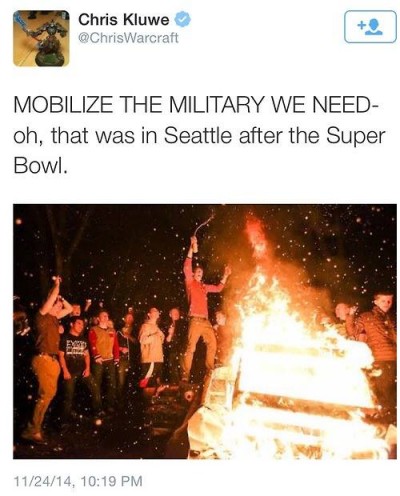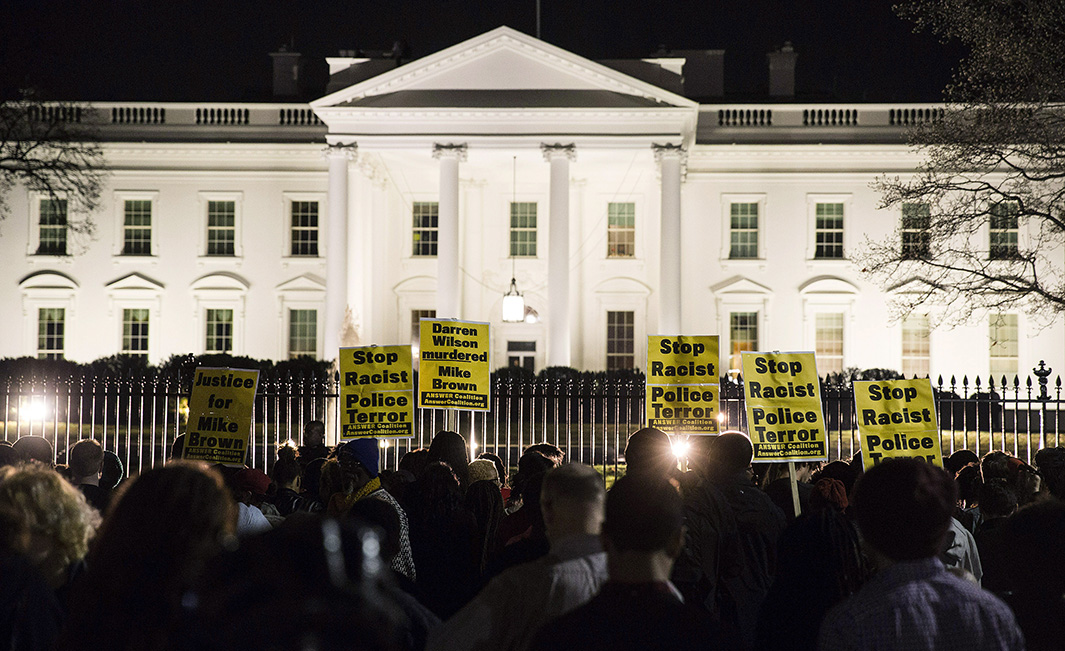Dead men tell no tales and grand jury proceedings are secret — except in the case of the St. Louis County grand jury.
Prosecutor Robert McCulloch announced the foregone decision Monday night about the fatal confrontation between Ferguson police officer Darren Wilson and the young man he shot to death, Michael Brown, supposedly in self defense. (I learned about the grand jury’s decision on Twitter before McCulloch even opened his mouth.)
The media already had access to the reams of evidence that the grand jury considered. After spending several months listening to 70 hours of testimony and viewing volumes of other information, the panel of nine white and three black members came to the only logical conclusion based on the facts without judicial guidance or a real prosecutor: they could find no reason to indict Officer Wilson of any crime in shooting the 18-year-old Brown.
The carefully-orchestrated release of the information, even McCulloch’s unusual night-time press conference, was the way criminal justice powers that be in St. Louis chose to tell the world, “There’s nothing to the claims of a racially-motivated, extrajudicial killing here, people, so let’s move along.”
But people are not getting over it. Nor is life moving along as usual. The smoldering embers of charred police cars and buildings in Ferguson, the thousands of people across the country who flooded the streets over the grand jury’s no-bill are the exasperated outpouring of rage and grief over the handling of the Wilson-Brown case and, by extension, every other case involving police officers who’re killing unarmed black and brown civilians, seemingly without any accountability.
The back-to-back, high-profile police killings of Eric Garner on July 17, John Crawford on Aug. 5 and Michael Brown on Aug. 9 — coupled with the 2012 shooting death of Trayvon Martin and the acquittal of his wanna-be-cop killer in 2013 — have riveted the American public’s attention on excessive police force that seem rooted in history and racist stereotypes.
Serious discussion and resolution need to happen around these lapses in the criminal justice system, for the good of the republic.
We have to, because these young folk — who never directly experienced the blatant kind of racism that presented a clear and present danger that their African American fore-fathers and fore-mothers lived with every day — will not bow and scrape before the barely veiled idol of white supremacy and systemic racism that routinely dismisses their legitimate concerns as “playing the race card.” They will not continue to accept second-class treatment in America’s legal system, any more than Rev. Fred Shuttlesworth and co-founders of the Alabama Christian Movement for Human Rights accepted racial segregation 60 years ago. Many of these folks don’t even know what the ACMHR was. Heck, I didn’t know myself until a few years ago, so I know that people younger than me are clueless about their own history.
 We have to, because in the next few decades, these black young people — and their fellow Latino and Asian brothers and sisters — will constitute the majority of American citizens in the next 30 years (Whites will be a super minority group, in “their own country”). The 18 to 35 years olds of color today will become the community, business, political and educational leaders of tomorrow. And what will be top of mind for many of these future leaders will be how they felt on Nov. 24, the day the justice system exonerated a cop who was allowed to convince grand jurors — with no proper judicial guidance — that he was justified in shooting an unarmed 18-year-old to death, despite questionable circumstances.
We have to, because in the next few decades, these black young people — and their fellow Latino and Asian brothers and sisters — will constitute the majority of American citizens in the next 30 years (Whites will be a super minority group, in “their own country”). The 18 to 35 years olds of color today will become the community, business, political and educational leaders of tomorrow. And what will be top of mind for many of these future leaders will be how they felt on Nov. 24, the day the justice system exonerated a cop who was allowed to convince grand jurors — with no proper judicial guidance — that he was justified in shooting an unarmed 18-year-old to death, despite questionable circumstances.
Too many discrepancies still linger around the conflicting stories about Brown’s death for Officer Wilson to have walked away without a public trial.
In a quick reading of some of the grand jury documents a day after the announcement, I noticed some issues: Why didn’t Officer Wilson’s supervisors file a written report of his initial statement (a senior officer didn’t recall Wilson saying he knew about the strong-arm robbery)? Why was Wilson allowed to return to the police station unattended and wash blood from his hand. Why was his gun not immediately confiscated and processed for evidence of Brown’s fingerprints? Did the grand jurors discount the autopsy evidence about the shot that went front-to-back in Brown’s arm, which was consistent with testimony about his hands up in surrender? Did they ignore or even hear the corroborating testimony of the construction workers who saw Brown with his hands up in apparent surrender as he moved toward the officer and who didn’t hear the officer order Brown to lay on the ground?
Apparently, other people have some of the same questions about the evidence and this highly unusual grand jury process, was more like a private trial without a judge and prosecutor than a review of the evidence. However, police officers are rarely indicted in fatal shootings while they are on duty.
Despite the good face that St. Louis officials have put on what is essentially Officer Wilson’s acquittal, they have sanctioned the use of excessive police force that has claimed the lives of too many black and brown citizens, also under questionable circumstances. Too much of what’s playing out in these killings feels like rage against progress that threatens white supremacy.
Without public scrutiny of facts (as happened in St. Louis) around police shootings and successful prosecution of wrong-doing cops, today’s young people live in real fear of their lives when encountering officers like Wilson, who said Brown became angry “like a demon” and who can kill in fear of threatening and powerful black bodies without any negative consequences.
This generation’s psyche will be shaped by these extrajudicial killings. Like the civil rights leaders of generations past who fought against slavery, lynchings, “separate but equal” education, lack of fair housing and economic apartheid, this next generation will struggle against policies cloaked in garments of respectability. But these policies are designed to dilute their power, like voter ID laws, gerrymandered voting districts that impede the vote, that deny access to affordable healthcare, that discriminate against immigrants, and that cut the very safety nets that lifted generations of white Americans out of poverty.
Structural racism still exists in this country, and no, it’s not my imagination. I can feel it when I go to church, when I drive through the dilapidated ‘hood, when I pay my taxes. The Matrix of Racism is everywhere, even though I can’t smell, taste or touch it. And it is real.
And I now believe our young leaders will be the one leading the charge to change the system. When I saw the faces and places where the Ferguson protests have broken out, I see diversity of races, ages and genders. Thanks to social media, people around the world see a new generation of young Americans once again standing up for what democracy should really be. I hate that it has taken the deaths of many people, the denial of equal justice in courts of law, the strangling of hope in air-tight cages of poverty and limited economic opportunities.
But if this is what it takes to wake people up to the reality of lingering racism and an unjust criminal justice system, then our pain and suffering will not be in vain.
At the very least, I hope that, at the request of Michael Brown’s family, body cams will become standard issue for police officers, like guns and handcuffs (Body cams have already been shown to reduce citizen complaints and use of force). I also hope we all will get some strategic intercultural training and come to understand what racism actually is, that they can check what drives their attitudes and actions towards people of color.
I think our next generation of leaders (and their parents) will lead the way in this change. And they will do it in memory of Michael Brown, just like Rosa Parks refused to give up her bus seat in memory of Emmett Till.


“Serious discussion and resolution need to happen around these lapses in the criminal justice system, for the good of the republic.”
Thank you so much for writing this, Vickii. I agree that we must educate both people who are unable/unwilling to understand why all the anger and all on the real history of both the movement and what lay behind the need for mobilization, and how oppressors have almost always found other ways, some violent, some “legal,” to fight justice and equality for all.
It beautiful. but it all the truth nothing but the whole truth thank you miss. vickii for it you’re wonderful..
This is a great article.